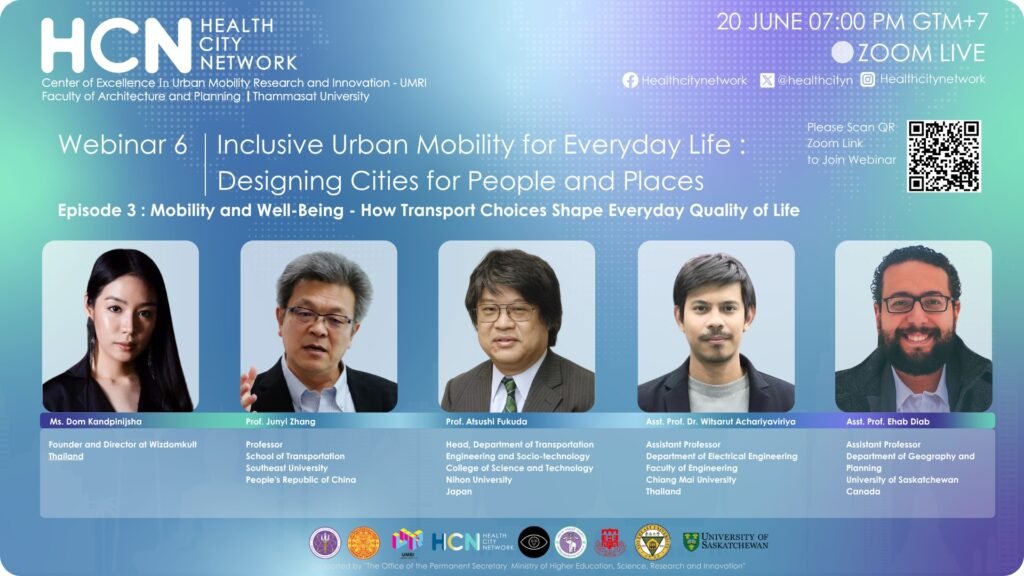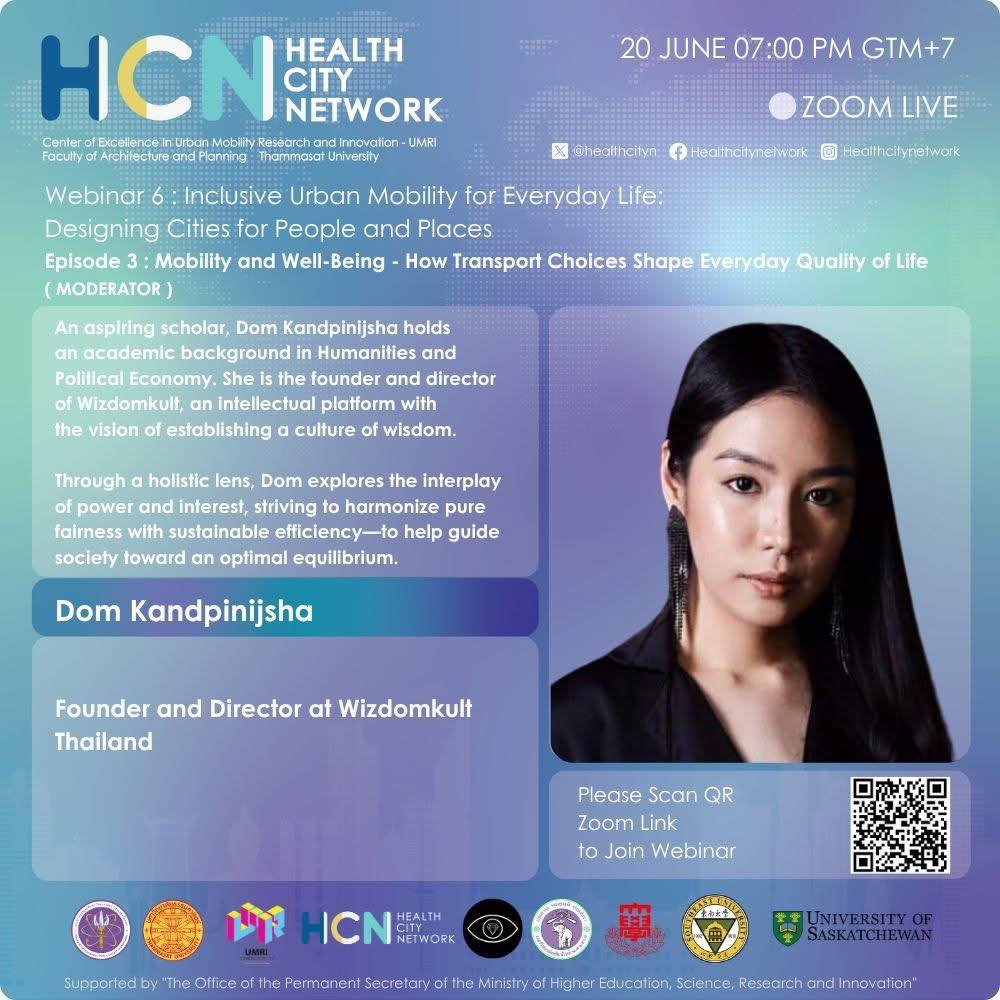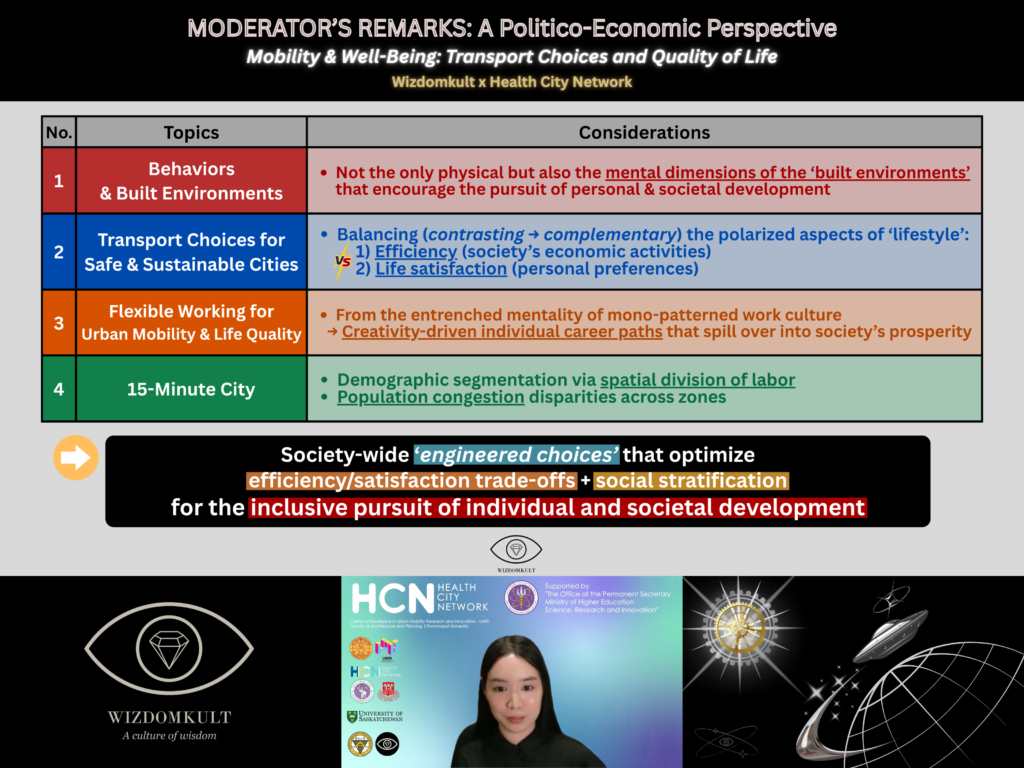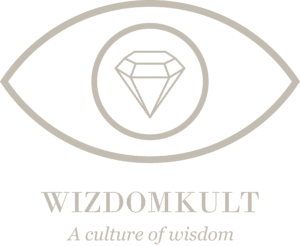No matter what I do, I must be fabulous! I must be hyper! 🌟
— Dom K. de la Wizdomkult
If I’m going to be a seminar’s Moderator, then I must be the (positive) intellectual DOMinator! 👩🏻💼🎙️⚡️
I was selected as the Moderator of the webinar ‘Mobility & Well-Being: Transport Choices and Quality of Life’ in the series ‘Inclusive Mobiity for Everyday Life: Designing Cities for People and Places’ by Health City Network, Center of Excellence in Urban Mobility Research and Innovation (UMRI), Faculty of Architecture and Planning, Thammasat University. The webinar is an academic event where distinguised speakers in the field of urban and transportation development shared their brilliant insights under the integral theme.


As soon as I learned that I would be serving as the Moderator for an international seminar, I was determined to fully harness my capabilities to analyze and highlight thought-provoking insights through my lens as a political economist—delivered in true Wizdomkult style. 🦾👁️🧠🔥
The Moderator’s role is to guide the event throughout. But more than that, I aimed to contribute my own incisive reflections on the issues from the presentations of experts in urban development and transport systems that I see as critical to uplifting human society 🎯⚙️⚖️🗝️—connecting them to the seminar’s theme: ‘Transport Choices & Quality of Life’. 🚦🚀🛸🚁🏎️✨
During the Moderator’s opening remarks, I emphasized the importance of ‘reengineering choices’ that enhance quality of life and unlock human development potential💫–a Wizdomkult’s way of setting the intellectual tone for the event. ⚖️🧮🔑🔓🔎📌💡
The table in the Moderator’s Remarks slide shown here was created live as I listened to each speaker (I had prepared the template in advance). From highly technical content, I extracted and synthesized points I found worth contemplating, to present an overall view from my politico-economic perspective:
1️⃣ Behaviors & Built Environments:
The speaker introduced the concept of H.E.A.R.T.Y. Cities (Healthy/Happy, Energy-efficient/Eco, AI-driven, Resilient, Tourism-friendly, Yearning).
I was especially drawn to ‘Yearning’—a term that evokes the need to design environments that not only encourage positive physical behaviors but also nurture spiritual drive and inner motivation. These deeper forces inspire individuals to grow, ultimately uplifting society as a whole. 👤🪽🌐✅🌈
2️⃣ Transport Choices for Safe & Sustainable Cities:
A case study presentation examined urban development with a focus on residents’ lifestyles, exposing a trade-off between spatial efficiency for economic growth and the genuine happiness of people’s everyday lives. (For example, high-rise condos may accommodate more residents but often compromise the natural human need for space and comfort. 💢🪫🪤🚨⛓️💥❌)
This sparks reflection on the need to balance both dimensions—not settling for “either-or” but striving for mutually complementary outcomes. In short: development should tap into high-potential growth that aligns with high-quality human living. ♾️🗽🌟💫🔋✨
3️⃣ Flexible Working for Urban Mobility & Life Quality:
This talk addressed how increasing flexibility in work hours and formats can reduce congestion in urban areas.
It prompted thoughts on moving beyond rigid “old-world” work norms ⏳🕯️☠️, toward creative, self-defined career paths where individuals strive to go all-in on their unique calling—while simultaneously generating value and advancing society through that very path. 👽🦋🦄✨
4️⃣ 15-Minute City:
The speaker discussed the acceptance of the “15-minute city” policy–an urban planning framework ensuring that essential services are accessible within one’s neighborhood–by pointing out variations in socio-economic factors that influence public acceptance.
In my view, one must not overlook the importance of demographic segmentation in each area in terms of the division of labor, where each inherently contributes different kinds and levels of value depending on their endowments. Additionally, population disparities across zones may affect population flow equilibrium, potentially leading to new forms of concentrated development if not properly managed. 🚸 🚴🏼♂️🏃🏻♂️➡️🌲🧘🏻♀️⏰
❣️ Overall Conclusion: ‘Engineered Choices’ for Progress
All of these insights underscore the importance of ‘engineered choices’ that optimize efficiency and life satisfaction trade-offs, along with social stratification, aiming at fostering both individual and collective progress.
💡 Q&A Highlights
The event’s Q&A session also featured an excellently thought-provoking question from Toon (Preechaya Saraphol), a specialist in urban and transportation development from the Department of Land Transport, (who also recommended me for this moderator role)
🤔 Toon’s Q.:
“In designing spaces to reduce social gaps in a context of high inequality, should we bring down those with very high quality of life, or find ways to uplift those with less access to resources?”
Citing the economic concept of ‘Pareto efficiency‘, my answer reflected my firm belief:
💫 Dom’s A.:
“Humans should develop to their fullest, limitless potential and should not be held back simply to reduce inequality. However, it is essential to regulate and raise the floor of quality.
Considering this from the perspective of spatial development highlights that, even with the most flexibility-oriented design efforts by experts, physical limitations inevitably remain. Therefore, we must not allow physical innovation to overshadow the importance of incentive-driven governance mechanisms—particularly in controlling population expansion with a strong emphasis on quality, grounded in the principle of the equilibrium of efficiency and fairness.” ⚙️⚖️⭐️
Deep appreciation is extended to all the esteemed speakers for their brilliance and insight. I would also like to thank Health City Network by the Center of Excellence in Urban Mobility Research and Innovation (UMRI), for entrusting D and Wizdomkult with this significant opportunity. 🙏🏻❤️
It has greatly enriched my perspective and broadened my experience in the domain of space development for the betterment of humanity.⚡️
Find on:


